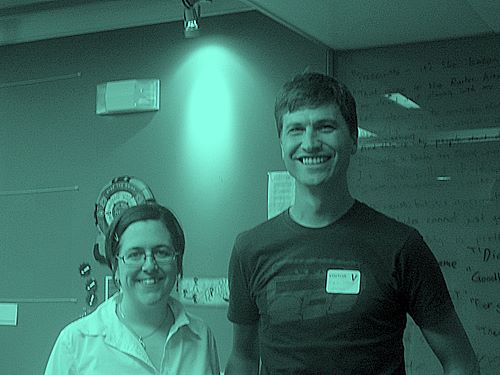A visit to Project Media Literacies @ MIT
Last month I had the pleasure of heading up to the Massachusetts Institute of Technology (MIT) to meet Erin Reilly, Research Director at Project New Media Literacies (NML). This is one of six research projects within the Comparative Media Studies program at the university.
The team at Project NML have come up with a list of new media literacies (NMLs) and cultural competencies that young people need to learn, play, work and live in the 21st century. Since I first blogged about the NMLs in 2007, one more has been added:
Visualisation: the ability to interpret and create data representations for the purposes of expressing ideas, finding patterns, and identifying trends.
“It’s a dynamic, living list,” says Erin. She explained that many youth today have already learned some of these competencies in social settings, but that it’s important for them to formally develop the competencies in other, constructive settings, e.g. in the classroom. Project NML aims to help create that space — wherever it may be, in school or at after school venues — to give youth and educators the appropriate language to critically think about and practice these competencies. Their work is in direct response to the emerging participatory culture in the world.

Erin Reilly and me at Project New Media Literacies, MIT
One of the issues we spoke about was how to promote the importance of NMLs to educators and parents. While Erin and I get this importance, what about those who don’t, who think a “back to basics” (traditional, non-digital) approach is what is needed in education (as is the case in South Africa)?
Erin explained that we have to present NMLs as a very effective way to develop the basics. We need to demonstrate how to effectively leverage popular culture — which is highly engaging for young people — in the classroom to develop the 3Rs of reading, writing and arithmetic.
She believes that the labels are not important, e.g. NMLs or 21st century skills. What is important are the actual competencies. We need to call these whatever necessary to get the point through. Further, we need to empower educators to create the spaces for their learners to develop and discuss the NMLs. We cannot be the experts who come into the classroom and take over from the teachers. They must be the experts in NMLs.
Taking this approach — NMLs as the way to develop the basics — is an effective way to make NMLs part of the curriculum and not an add-on (which drastically reduces it’s uptake by already overworked teachers).
Another key point that Erin raised was how the team at Project NML is increasingly realising that it’s not useful to separate formal education and informal learning. While there are differences between these contexts, the educational dillemas in each are the same, and the learnings in each are easily transferred to the other context.
Finally, Erin demo’d the forthcoming Learning Library, an online play space for learners to practically develop new media literacies.
Hopefully we’ll continue to explore NMLs and work together to see how they play out in the developing world. As I’ve said before, participatory culture is alive and well in the developing world, it just looks different.



